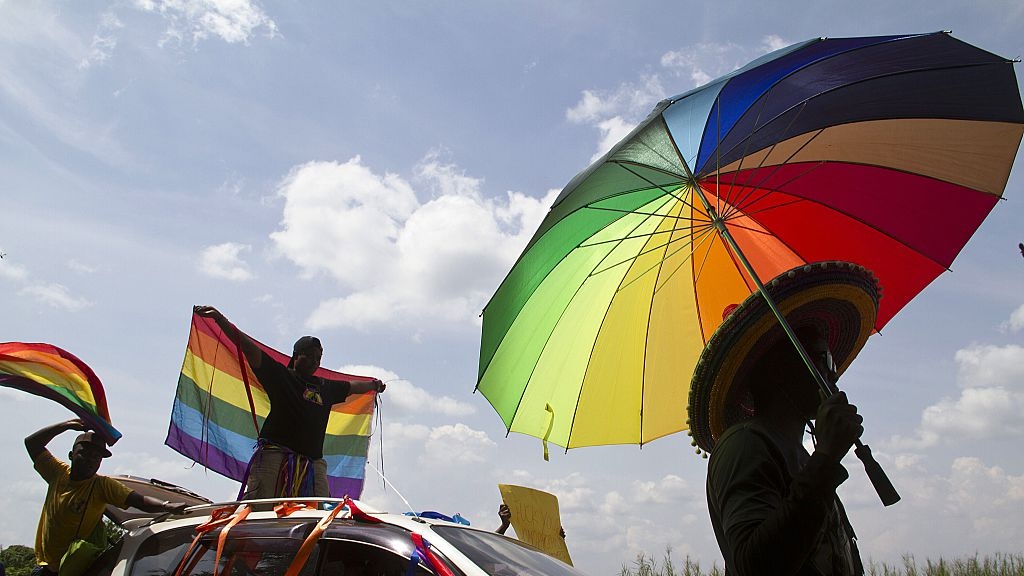In an unprecedented victory, a 27-year-old lesbian asylum seeker was found to have been unlawfully detained and deported from the U.K. by Britain's Home Office, the department responsible for immigration and homeland security, in the country’s court of appeals.
According to The Guardian, the woman, who can only be identified as PN, spent seven years embroiled in a battle for sanctuary. PN was deported back to her native Uganda and forced to hide out of fear of being attacked for being a gay woman in the East African nation. She testified that she had been gang-raped, which resulted in a pregnancy. She gave birth to a son who is now 18 months old. Before her deportation, authorities unlawfully had PN jailed for over a year in the Yarl’s Wood immigration removal center in Bedfordshire. The asylum seeker flew back to the U.K. in 2019.
Court documents detailed PN’s harrowing journey from Uganda to the U.K. and her subsequent expulsion from the European nation. The report indicated the woman was an orphan, taken in by family members. And that she survived childhood rape and sexual abuse.
PN had lesbian relationships — which, in Uganda, are illegal — during her adolescent years. In September 2010, she left the country at 17 years old on an accompanying minor visa and headed to the UK. In February 2011, she hadn’t reached the age of majority, but the Home Office determined that she was in the U.K. illegally due to overstaying her visa.
In July 2013, when PN was 20 years old, she was arrested in London for the visa violation. She reportedly gave the police a false name after being found in bed with a man. And that incident led authorities to believe that she was lying about her claims for asylum as a lesbian.
"PN, who was then aged 20 years, was arrested in London for overstaying," the document states. "When she was arrested PN was in bed with a man, and the various explanations given for that fact became an issue in the asylum claim. PN gave a false identity on arrest. It was common ground that PN’s initial detention was lawful."
Attorneys for the Home Office argued that PN could openly live as a gay woman in the U.K., but a judge considered the litigant’s background. He also acknowledged the inconsistencies in PN’s story before ruling in her favor.
PN was ecstatic about the ruling.
“I feel so happy for this decision. When you are fighting so long for something, it feels like you will never win, and that is very frightening,” she told The Guardian. “This journey has not been easy, and it is amazing to win against the Home Office who have put me through so much torture – I was waiting for this day to come.”
Ugandans in the LGBTQ+ community in their Patria risk their lives to find places where they can live without risk of persecution or harm. In 2014, the Ugandan government introduced the Anti-Homosexuality Act. The bill outlawed same-sex partnerships and sexual acts. According to Amnesty International, the draconian law added another egregious measure to the excessively harsh law–mandatory life sentences for those found guilty of having “same-sex relations.”
In October 2019, Rolling Stone wrote an exposé regarding another Ugandan asylum seeker. A 20-year-old woman named “Margaret” sought asylum in the United States after coming out as a lesbian in Uganda. Her declaration resulted in repeated rape and physical abuse. The young woman’s trek to safety took six months.
She finally ended up at the Juárez, Mexico–El Paso, Texas border, where Margaret successfully entered the U.S. after having her documents stolen in Mexico. The United States eventually denied Margaret asylum, citing, they “had determined that, despite being a lesbian from a country in which it is illegal to be one, and despite having already suffered beatings and a rape Margaret had no ‘credible fear’ or any way of knowing what would happen if she were sent back,” according to the magazine.
Anti-gay acts of violence and brutality are common in Uganda. Last August, doctor in Uganda brutally beat a female patient after he learned that she was a lesbian, per The Guardian.
As more Ugandans come out, their safety has to be a priority for the countries where they seek asylum. For those who choose to live freely, their lives should not be at risk for being true to themselves.

